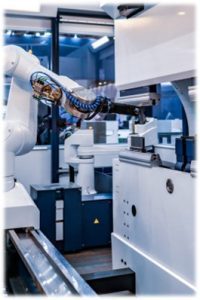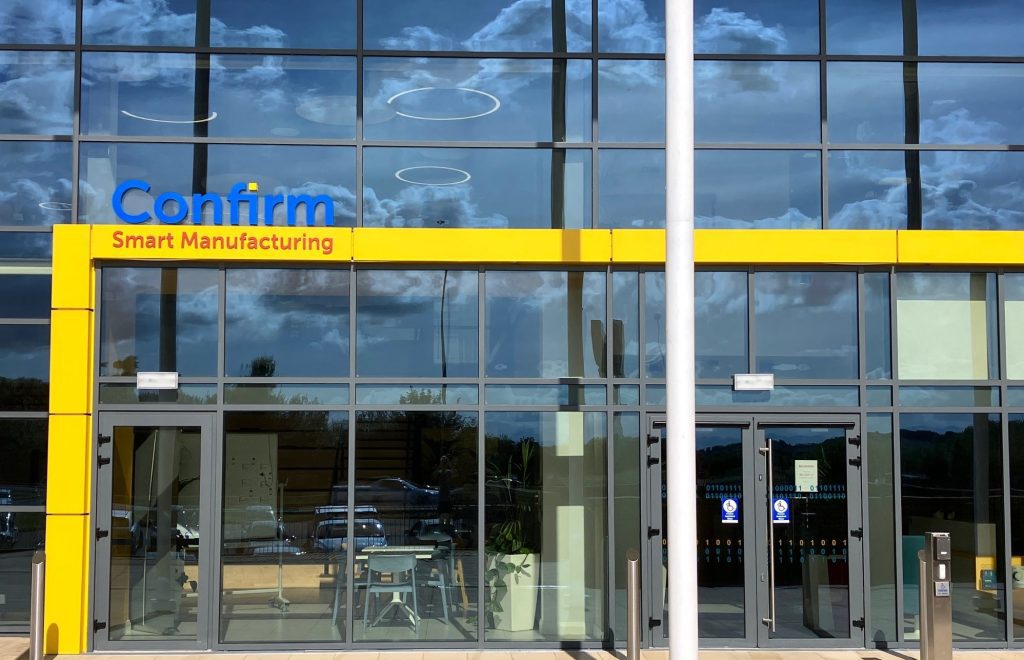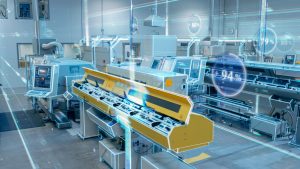In a series of blogs, CONFIRM, the SFI funded Centre for Smart Manufacturing Research will talk about how it visualises the future of Smart Manufacturing and will address the emerging Grand Challenges in this area. CONFIRM will also talk about the aspects of Smart Manufacturing they will focus on by means of newly devised research themes that will govern the Centre’s activities in Phase 2 of its research programme (2023-2029).
This first blog will introduce the background as to how and why CONFIRM decided upon these Grand Challenges for manufacturing, and also introduce its complimentary approach of using research based ‘Missions’ and ‘Themes’ to specifically address those Grand Challenges.
Background
Policymakers, industry, and other key stakeholders are looking at taking a more holistic view at the societal, economic, and environmental impacts of manufacturing and its associated challenges. Designing effective approaches that will have positive benefits across each of those aspects are necessary to prepare economies and societies for the future as well as having lasting and positive environmental effects.
This is taking place amid a backdrop of rapid technological advance, which will have huge transformational impacts, and so it is vital to harness this technology for the greater good. It is particularly critical to shape technologies to make industry more sustainable. This must entail sustainability in the fullest sense, covering the economy, environment, and society. In this way, technological advances will feed into environmental advances/improvements.

The most critical trait that has been identified over the last several years by industry and policymakers is that of Resilience, which is taken to have an extensive meaning. Resilience is one of the most significant challenges facing industry and society over the next decade. Global disruptions, natural and manufactured, are leading to mass factory shutdowns, demand surges for essential goods, dwindling natural resources, and shifts in consumer behaviour and modes of work. All these negative impacts are challenging to global value chain flows, with resulting grave consequences for society, businesses, consumers, and to the wider global economy. These disruptions have brought into sharp focus the need for companies to transform their manufacturing operations to be sustainable, highly automated, flexible, and agile. And for workforces to be supported such that they can adapt and respond to market needs and opportunities.
Following extensive consultation and review of national and international strategy documents, CONFIRM has distilled this emerging global picture and identified two Grand Challenges in its expert area of Smart Manufacturing. These Grand Challenges have been carefully conceived and formulated in terms of supporting the UN Sustainable Development Goals (SDGs) and boosting economic development more broadly. The Grand Challenges concern the development of resilient manufacturing systems, and secondly, the creation of a future ready workforce.
CONFIRM Grand Challenges
- Resilient Manufacturing Systems
- Future Ready Workforce
These Grand Challenges will provide the lodestar for all CONFIRM’s research in Smart Manufacturing during its Phase 2 research programme (2023-2029).

Resilient Manufacturing Systems is vital to any industrial ecosystem, especially one that needs to be responsive to threats and severe disruption, and capable of meeting rising environmental and social requirements. For industry to develop such capabilities, it will need to increase the responsiveness, efficiency, and adaptability of its processes, thereby significantly increasing manufacturing performance.
A Future Ready Workforce will involve humans and AI/machines working collaboratively, with digitalisation and automation augmenting workers capabilities and enhancing their roles. It will be necessary to develop the education, skills, knowledge, and facilities to enable the necessary technology diffusion and knowledge absorption capacity and deliver on a vision of digital transformation.
Out of these two Grand Challenges arise significant research questions around production and supply chain resilience, along with how to develop a future ready workforce able to adapt to new industry shifts, and this has formed the strategic backdrop to CONFIRM’s Phase 2 research programme.
To drive impact, CONFIRM Phase 2 is adopting a mission orientated research and innovation approach as a problem-solving framework to fuel innovation led growth to address those Grand Challenges.
The five missions that have been identified as areas of focus for CONFIRM Phase 2 are:
- Distributed Making
- Green Supply Chain
- Flexible Manufacturing Cell
- Manufacturing Transition Platform
- Digitally Enabled Work
These five missions are in turn fed by five interwoven key research themes:
- Cognitive Production Systems
- Distributed Supply Chain & Manufacturing Systems
- Secure Manufacturing & Supply Chains
- Human-Machine Collaborative Manufacturing Systems
- Circular Manufacturing & Supply Chain Systems
This approach ensures that, from the outset, all the research themes are strategically aligned, focused, and mutually reinforcing.
Blog 2 will go into more detail on the ‘Missions’ that CONFIRM have identified for the Grand Challenge of ‘Sustainable Resilient Manufacturing’







